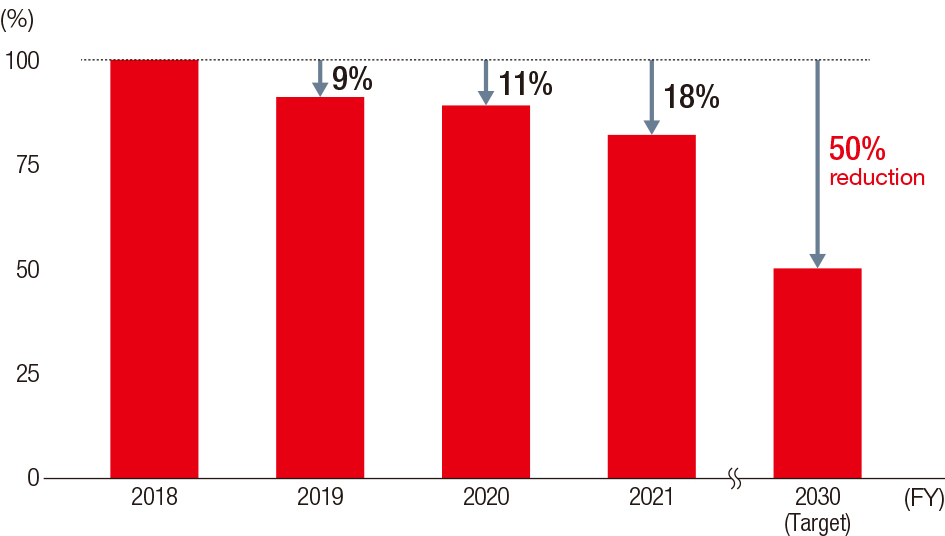Climate change adaptation and mitigation
Approach
The pressing global challenge of climate change is one of the most important issues as it makes a significant impact on the business and strategy of the Ajinomoto Group. As climate change continues to worsen, we can expect to see more risks, such as difficulty in procuring raw materials. The Group regards climate change as a Group-wide material risk and opportunity. As such, we are looking at countermeasures from the four perspectives of governance, strategy, risk management, and metrics and targets. In addition to promoting energy-saving activities and the use of renewables to help reduce our impact throughout the whole product life cycle, we will participate in global initiatives, striving to solve problems while collaborating both internally and externally.
Specific examples
- Reduction of Greenhouse gas emissions (Scope 1, 2, and 3)
- Energy management
- Fuel management
- Air quality
Related opportunities and risks ( Opportunity
Opportunity  Risk)
Risk)
 Initiatives toward net-zero GHG emissions, and cost competitiveness ensured through reduced carbon tax burden
Initiatives toward net-zero GHG emissions, and cost competitiveness ensured through reduced carbon tax burden Collaboration with outside organizations on decarbonization
Collaboration with outside organizations on decarbonization Failure to procure raw materials due to climate change
Failure to procure raw materials due to climate change Damaged corporate value due to delayed response to climate change
Damaged corporate value due to delayed response to climate change
Key initiatives by the Ajinomoto Group
- Long-term effort to turning the overall product lifecycle carbon neutral
- Initiatives to reduce energy use during production and transportation
- Convert to fuels with lower greenhouse gas emissions emission factors
- Use of internal carbon-pricing
- Disclosing information in line with the Task Force on Climate-related Financial Disclosures (TCFD) (scenario analysis, etc.)
- Lowering environmental impact by feed-use amino acids (reduction of soil and water pollution)
Related SDGs
-
Greenhouse gas emission reduction rate (vs. FY2018)*

* Performance vs. SBTi targets
Activity Report
- Our approach to climate change (Financial Report 2023 on P.18)
- Summary of climate-related risks and opportunities using scenario analysis and our actions
- ASV Report p.47 “Approach to reducing our environmental impact by 50%”
- Environmental management
- Response to climate change risks
- Reduction of greenhouse gas emissions in the value chain



